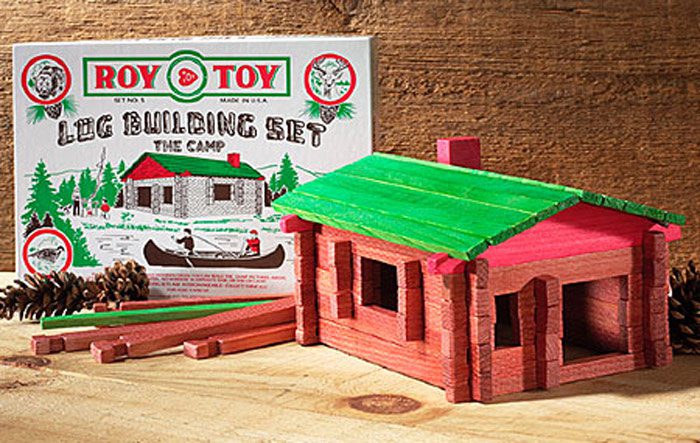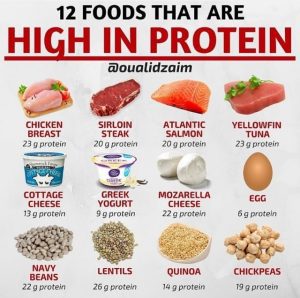When you were a kid, chances are you played with blocks, Lincoln Logs, Lego or even an Erector set. You start with a base and add a block or there, using the blocks to build up or out creating a strong house. As well, your body gets stronger by
 Building With Protein
Building With Protein
In the same way you build a house from Lego blocks, your body is building with protein. It uses nutrients to build, repair and replenish the portions used up. Of course, your body’s “building blocks” aren’t made of wood or metal. According to the American College of Sports Medicine, “proteins contain essential and non-essential amino acids. Amino acids are the building blocks for all our proteins in the body”. “Essential” amino acids are those the body does not produce on it’s own. These must come from an outside source, namely the food we eat.
Why We Need To Build With Protein
Test your knowledge with a short quiz, courtesy of the Harvard Chan School of Public Health.
“The linguistic origins of protein — from the Greek proteios, meaning “first place” or “primary”…” Protein is a multi-functional nutrient for the body. Web-MD sites at least 10 different functions proteins perform for the body daily, including muscle building, healing and cutting cravings. Protein also functions as one of three macro-nutrients the body needs to keep you balanced and performing your best.
When We Stop Building With Protein
Sarcopenia is a “loss of muscle as a result of aging”. Even if you exercise regularly, you will suffer age-related muscle loss; just not as quickly as the average American ‘couch potato’. While the adage “Use it or lose it” may not fit many areas of life, it is absolutely true when speaking of muscle. Sarcopenia can limit one’s ability to walk up stairs, may increase fall risk and even interfere with normal daily activities. Are you concerned you or a loved one may be losing muscle mass? Take a simple quiz offered by Aging In Motion. Look for and click on the term “SARC-F” in the text. This simple self-evaluation will help you assess your own risk of sarcopenia.
How Much Protein Do I Need?
According to the USDA, the women need about 46 grams of protein daily while men need about 56 grams daily. This is a minimum for survival; not necessarily for optimal health. Dr. Donald Layman, University of Illinois, notes in this video that the body needs about 250g of proteins daily because of what he calls “protein turnover”. Further, he suggests 1.2 – 1.6g of protein/kg of body weight as a start. Make sure you take into account the quality and quantity of protein and distribute protein intake throughout your daily meals.
Start Small
General consensus for protein consumption is about 90 – 120g/day. For most people, this seems like a lot, especially if you are a vegan or vegetarian. So, start small. Aim for about one half of your body weight in grams of protein per day. So, a 150 pound person should start at about 75g/day. Considering a four-ounce piece of chicken has about 31g of protein, you can easily reach this goal by enjoying a variety of foods throughout the day.
Don’t forget about your goal!
Dr. Josh Axe suggests we take in optimum protein amounts for specific goals like weight loss or muscle mass. Why is this important? You want to consume the amount of nutrients your body needs based on your goal. If you want muscle mass, you will most likely consume more protein than someone interested in weight loss. Dr. Donald Layman offers this short video discussing the amount of protein we need.
Building With Protein: Sources
Protein is found in animals and plants. A higher protein diet can include:
- Chicken
- Fish
- Beef
- Eggs
- Yogurt
- Beans
Here’s a list of protein rich foods from Matthew Kadey, Nutritionist with Bodybuilding.com.
In addition, there is a plethora of different protein supplement powders available today. Some are better than others. Optimally, choose organically produced supplements that work best with your body. This may mean a little trial and error, so here are resources to help you get started:
Take-Aways
Protein is extremely important in our diets and our daily lives. Protein allows for proper muscle function. It helps support and sustain mobility and movement and can even assist in weight loss. Whether animal or vegetable, protein comes in many varieties suitable for all appetites and diet preferences. So the next time you fix a meal, think about the protein on your plate!
